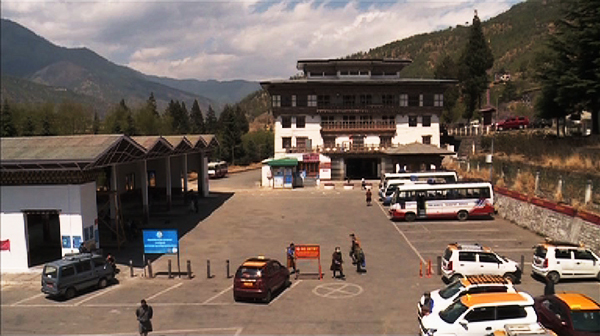 The government announced several physical distancing and stringent social gathering restrictions on 28th March. The government announced restrictions on all non-essential and leisure travels within the country and instructed the Road Safety and Transport Authority (RSTA) to minimise the number of passengers travelling in buses and taxis. The RSTA wasted no time in developing the interim standard operating procedures (SOP) for public transport buses and taxis, which were implemented on 29th March.
The government announced several physical distancing and stringent social gathering restrictions on 28th March. The government announced restrictions on all non-essential and leisure travels within the country and instructed the Road Safety and Transport Authority (RSTA) to minimise the number of passengers travelling in buses and taxis. The RSTA wasted no time in developing the interim standard operating procedures (SOP) for public transport buses and taxis, which were implemented on 29th March.
As per the SOP, the carrying capacity of all buses and taxis were halved and passengers are only allowed to use the designated seats. The fares however will remain the same. While many are of the view that these preventive measures are important, what would these new measures mean to an already declining income of taxis and buses?
Speaking to BBS, Gyem Bidha, a taxi driver in Thimphu, said that while it is important for taxi drivers to help when the country is facing a crisis, with loans to pay, and children to look after, it is very inconvenient for them. “Many female taxi drivers are divorcees, which makes it even more difficult for us. The government could help us by increasing the fare so that taxis that are allowed to carry only two people, receive the fare for at least three,” she said.
Sangay Wangchuk, another taxi driver in Thimphu, said that it is a good initiative and could be implemented in taxis driving only locally, however, it would not be possible for taxis that provide long distance trip, like him. “I used to work in the tourism sector, but after the travel ban since I had loans to pay I hired a taxi so that I could continue working.”
Another taxi driver, Dorji, said that the number of people using taxis have already reduced as most people have been advised to stay at home. He feels sad as he hardly gets any passengers despite waiting the whole day. “In addition, I get worried about getting infected and infecting my family,” he said. He suggested that the government freeze their loans for the time being since over 80% of the taxis are acquired through bank loan.
There were also those of them who appreciated and supported the move.
Taxi Driver, Pachey, said that due to the COVID-19 crisis, every business was running into losses and not just taxi drivers alone. “It is everyone’s responsibility to take precautions. I am not worried as it is for our own safety.”
A bus driver, Man Raj Subba, said that it was a good measure as it makes it safe for both passengers and drivers. He added that since the government has not asked public transportation services to stop, it is a good safety measure.
Besides reducing carrying capacity in public transport, the Information and Communication Ministry, RSTA and the Bhutan Taxi Association decided to implement an odd-even road-rationing scheme.
There are more than 7000 registered members under Bhutan Taxi Association. With this scheme, taxies with odd and even number plates will ply on alternate days across the country. This system will be exempted on Sundays. Also, to minimise contact, taxi drivers have been directed to submit their daily passenger logbook in a suggestion box.
Samten Dolkar












